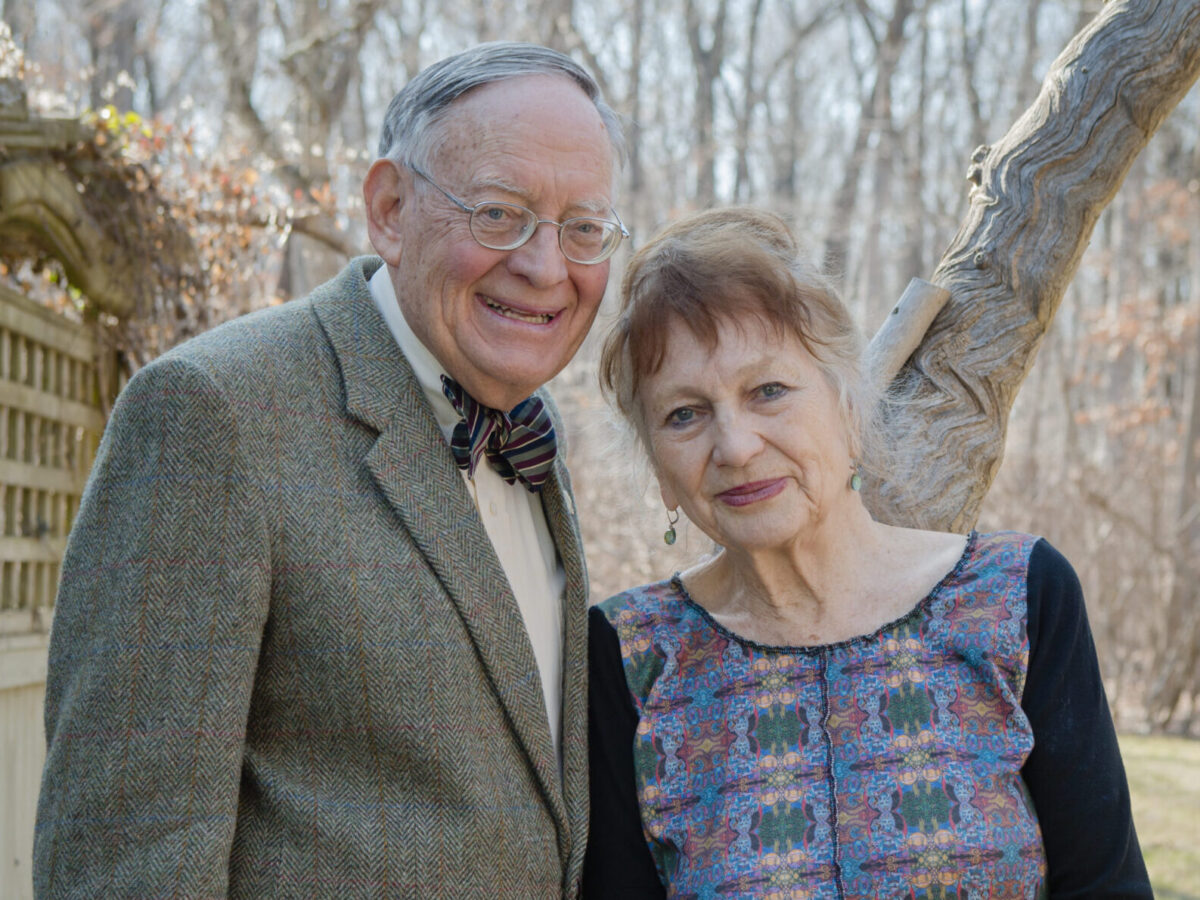Scott McVay ’51

A poet, naturalist and philanthropist, Scott McVay ’51 is inspired first and foremost by his wife, Hella — a German-born mathematician whom he met while assigned to Cold War-era Berlin with the United States counterintelligence corps. A favorite maxim is, “Without Hella, nothing; with Hella, everything.” Beyond his wife of 58 years, McVay finds inspiration in the wonders of nature. “As you look at the natural world,” he says, “in all its variability, connectedness and diversity, it’s just one miracle after another.”
That ability to see connections and appreciate diversity has been a hallmark of his professional life. With a career as wide-ranging as his interests, McVay has directed or served on the boards of numerous institutions — the Geraldine R. Dodge, W. Alton Jones and Robert Sterling Clark foundations, the World Wildlife Fund, the Chautauqua Institution, the Earth Policy Institute, and Grounds for Sculpture to name just a few — and worked tirelessly to promote the arts, education, women’s issues, environmental stewardship and animal welfare.
While director of the Geraldine R. Dodge Foundation, McVay created the biennial Dodge Poetry Festival to“elevate poetry in our culture.” Celebrating its 30th anniversary this year, the festival has been instrumental in bringing poetry to New Jersey’s schools, and it inspired journalist Bill Moyers to film three PBS specials, with 21 hours of footage from the festival. In 2010, McVay and his wife established the Scott and Hella McVay Poetry Trail in Princeton’s Greenway Meadows Park, reflecting their shared belief that poetry and science are closely linked. “The great poets provide insights that can illuminate and light our way,” McVay says. “Ideally, a scientist thinks like a poet.”
Another notable initiative was McVay’s work on the Dodge Foundation’s Chinese Language Initiative, a decades-long project aimed at introducing Mandarin instruction into American high schools. While China was still a “sleeping giant” in 1983, McVay and his peers sensed it would emerge on the international stage. With the help of Princeton University educators and a supportive parent base, the foundation provided funding and guidance to help implement Chinese language programs at the nation’s top schools. “Learning another language helps us see things in a new way,” McVay says.
What sparked his enduring interest in so many fields? “It was Moby-Dick!” As an English major at Princeton, McVay took a course on Melville’s epic and was captivated by the author’s encyclopedic descriptions of whales and the 19th-century whaling world. “I am insatiably curious,” McVay says, before quoting a line from the book that propelled his life: “It’s that ‘everlasting itch for things remote …’ that torments me.”
While he may not have landed on any “barbarous coasts,” his itch has led him and Hella on adventures of both the seafaring and intellectual kind. He has led two Arctic expeditions to study, film and record the elusive bowhead whale’s song and collaborated on a documentary film, In Search of the Bowhead Whale, with the National Film Board of Canada. He has also published dozens of scientific papers, one volume of poetry, Whales Sing and Other Exuberances (2013), and a 590-page memoir, Surprise Encounters With Artists and Scientists, Whales and Other Living Things (2015).
Surprise Encounters puts the focus not on McVay, but on the noteworthy individuals he has had the privilege of knowing. Written as a series of vignettes in which he describes his encounters with such luminaries as the Dalai Lama, Carl Sagan, Arthur C. Clarke, Edward Albee, Christo and Jeanne-Claude, E.O. Wilson, Sylvia Earle and Ralph Nader in prose and verse, McVay’s memoir received praise from Kirkus Reviews — but it’s his readers’ delight that makes this Renaissance man’s heart glad.
—Genny Beckman Moriarty
This article first appeared in the fall 2016 issue of The Exeter Bulletin.
Photo credits: Suzette J. Jucas Photography, courtesy of Community News Service.